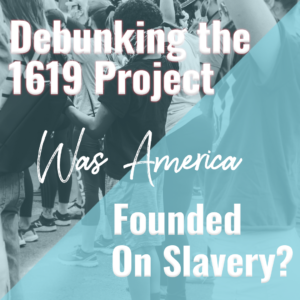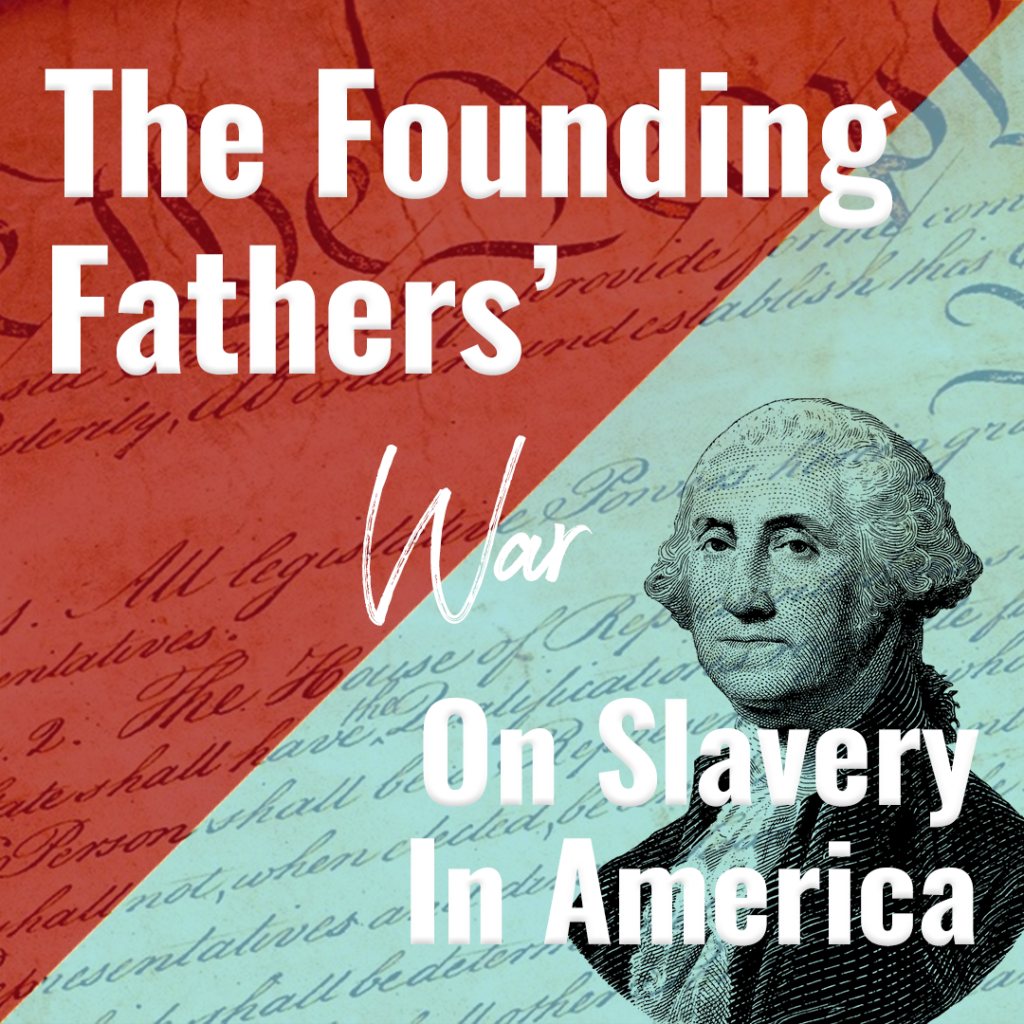Words of freedom are painted throughout America’s history. Equality, inalienable rights, the pursuit of happiness, and a good life. All these words ignite hope in people’s chests at the thought that there might be a chance to truly taste freedom.
And then it vanishes like vapor into thin air. America wasn’t founded on freedom and equality. The Founding Fathers… the very men who wrote the words that all men are created equal… they owned slaves. The Constitution and America’s freedom is all a lie.
Were the Founding Fathers really racist men who covered up the sins of slavery with nice rhetoric to keep their servants in chains?
Fact or Myth?
I’ll be honest, when I first started hearing these arguments, I began to wonder. How could the Founding Fathers write, “We hold these truths to be self-evident, that all men are created equal, that they are endowed by their Creator with certain unalienable Rights,…” (Declaration of Independence, 1776).
How could they say that and own slaves at the same time?
I dove into a deep study of the Constitution, its original wording, and the laws that were passed after the signing of the Declaration of Independence. What I discovered was not taught in my high school American history class!
History Got Twisted… Again
2020 Democratic presidential candidate, Pete Buttigieg, made a statement on a 2014 children’s television show. He said, “It’s an embarrassing thing to admit, but the people who wrote the Constitution did not understand that slavery was a bad thing and did not respect civil rights.”
Do a quick Google search on the Founding Fathers and racism, and you’ll get multiple examples of their hypocrisy. They owned slaves. If they were truly anti-slavery, they would have freed slaves through the Constitution, right?
And they actually did just that when you study the history.
Keep reading the Declaration of Independence, and the pieces will slowly come together.
“[…] Governments are instituted among Men, deriving their just powers from the consent of the governed, […]”
Dinesh D’Souza makes the point that if the Founding Fathers had outlawed slavery straight away July 4, 1776, they would have gone against the very government they were forming. The people of the colonies did not want to give up slavery. Therefore, since the people did not consent to the abolition of slavery, the Founding Fathers were left with a dilemma.
Creating a System That Would Abolish Slavery
The Founding Fathers had to wait until the governed consented to the abolition of slavery, but in the meantime, they brilliantly crafted a form of government that would eventually accomplish emancipation.
The Founding Fathers allowed “slavery in practice while outlawing it in principle,” and because of this, slavery became a “regional institution” rather than a national institution (Dinesh D’Souza Podcast).
We can see the success of their efforts when 8 years later, in 1804, “every state north of Maryland had either abolished slavery outright, or they had a schedule of abolition that was underway.” By 1808, Congress had outlawed the practice of slavery (Dinesh D’Souza Podcast).
The people of America continued to move toward the abolition of slavery and were eventually successful under President Abraham Lincoln in the 1860’s. The Founding Fathers maneuvered brilliantly to end the practice of slavery.
Did they make a law to force the colonies to give up their slaves? No. That would have been un-American.
But immediately after the Declaration of Independence was set into motion, the effects of its liberating law began to spread and free slave after slave in state after state.
The Three-Fifths Compromise
That’s all very well and good if the Founding Fathers eventually decreased slavery, you might say. But what about the three-fifths compromise?
The Founding Fathers are constantly mocked with the supposed devastating effects of the three-fifths compromise where a black person only counted as three-fifths of a person.
Again, if you read the original intent of the Founding Fathers, the key unlocks the answer.
Each state received representation in Congress based on its population count. The South requested that their slaves count as a full part of their population, which would have created an overwhelming pro-slavery influence in Congress, inducing a long-lasting foundation for slavery to grow in America.
Interestingly enough, the North won out, and blacks in both the North and the South were only counted as three-fifths of a person each.
This lessened the representation of the pro-slavery advocates from the South, gave equal representation to the North (which had fewer slaves and was anti-slavery), and it opened the door for the emancipation of all slaves in both the North and the South.

RELATED: Debunking the 1619 Project: Was America Really Founded On Slavery?
A Few Years After 1776, More Laws Were Passed To Fight Slavery
The Ordinance of 1784
Three years before the Northwest Ordinance, Thomas Jefferson attempted to pass the Ordinance of 1784 as a way to allow new territories to apply for statehood. Thomas Jefferson included provisions for the abolition of slavery, which were struck from the ordinance in the final vote. Although tragic that this ordinance was not passed to free slaves, it certainly laid the groundwork for the Northwest Ordinance to grant slaves their freedom in the 13 new states. It failed to pass by one vote.
The Northwest Ordinance
Three years after the Ordinance of 1784 failed to pass, the Confederation Congress passed the Northwest Ordinance on July 13, 1787. It is known historically as one of the most significant acts of the Confederation congress because it “protected civil liberties and outlawed slavery in the new territories” (Library of Congress).
John Quincy Adams and the Fight Against Slavery
John Quincy Adams was known as the “Hell-Hound of Slavery” as he worked tirelessly to abolish slavery.

The 24th Congress (1835-1837) passed a gag rule that forbade Congress from discussing anti-slavery topics. Adams fought tooth and nail against the gag rule, even shouting “during the roll call vote, ‘I hold the resolution to be a direct violation of the Constitution of the United States’” (House History). He continued fighting until in 1844, more members of Congress joined him and repealed the rule.
Adams introduced a Constitutional amendment in 1839 “to ban slavery in all new states entering the Union” (American Minute).
Adams gave a speech in 1841 before the House of Representatives, defending 53 Africans who were accused of mutiny on the La Amistad. He was 73 and spoke for 9 hours and won the case and the accused men’s freedom.
He said, “The moment you come to the Declaration of Independence, that every man has a right to life and liberty, an inalienable right, this case is decided.” And so it was!
Conclusion
Slavery is a great evil, and I am anti-slavery to the core. The fact that Americans owned slaves is a sad fact of history, but looking at the greater picture, we can see that the American way ultimately freed slaves.
The Founding Fathers laid the groundwork and committed their lives to abolishing slavery and growing support for abolition in the American people’s hearts.
I’d say this is a case of truth rather than hypocrisy. We just have to look at the history.
What do you think? Let me know in the comments below!

2 comments